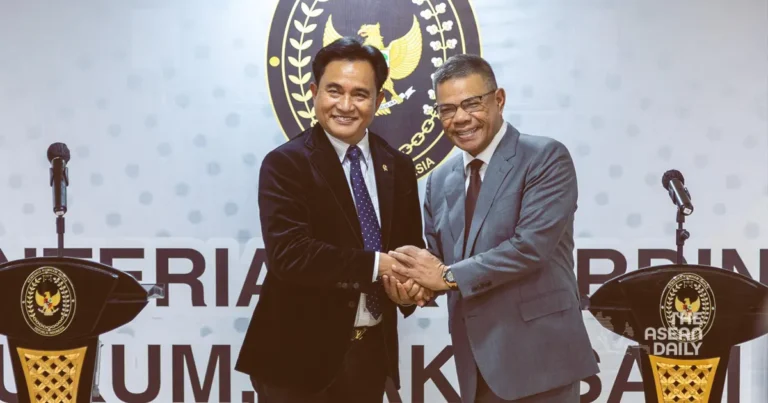25-2-2025 (JAKARTA) Senior officials from Malaysia and Indonesia have engaged in high-level discussions aimed at establishing comprehensive frameworks for prisoner exchanges and enhanced border management cooperation, even as formal agreements remain under development.
Home Minister Datuk Seri Saifuddin Nasution Ismail met with Indonesia’s Coordinating Minister for Law, Human Rights, Immigration and Corrections, Yusril Ihza Mahendra, to address the repatriation of detainees to their countries of origin despite the International Transfer of Prisoners Agreement not yet being finalised.
“Our discussions centred on establishing a comprehensive and effective mechanism for the transfer of prisoners and detainees,” Saifuddin explained during Tuesday’s press briefing following the ministerial dialogue.
The talks revealed significant numbers of foreign nationals held in each country’s detention facilities. Malaysian authorities currently hold more than 5,000 Indonesian citizens, including both convicted offenders and those awaiting trial. Of the 70 Indonesians facing capital punishment, nearly all—68 individuals—have submitted appeals seeking commutation to life imprisonment. An additional 3,000 Indonesian nationals are being detained in immigration facilities.
Saifuddin emphasised that individuals who have violated immigration regulations must settle outstanding fines before repatriation proceedings can commence. Conversely, approximately 300 Malaysian citizens are currently serving sentences for various offences in Indonesian correctional institutions.
Border management formed another crucial component of the discussions, with particular attention given to the development of nine new entry points along the Malaysian-Indonesian border in Sabah and Sarawak. “There are several matters that need further action, particularly regarding a checklist of requirements to be discussed at the official level,” noted the Malaysian Home Minister.
Both nations have expressed commitment to accelerating the ratification process for the Border Crossing Agreement, signalling a desire to formalise their cooperative arrangements.




